The C.S. Lewis Collection (30 vols.)
Digital Logos Edition
Due to rights limitations, we are unable to sell these resources individually.
Overview
C.S. Lewis, the beloved writer of such Christian classics as Mere Christianity and The Screwtape Letters, has come to Logos! Analyzing such wide ranging subjects as the idea of love in medieval literature or the reign of relativism among the post-Christian West, Lewis’ works have touched audiences of all ages and backgrounds. Beginning life as a student with a knack for storytelling, he went on to Oxford to study classical literature. Although an atheist, Lewis eventually embraced Christianity and began writing about the Christian faith.
The C.S. Lewis Collection presents his finest material, including Miracles, The Weight of Glory, A Grief Observed, and his science fiction epic The Space Trilogy. His various writings on literature and language are also featured, such as his famous work The Allegory of Love, a study on courtly love in the Middle Ages. The C.S. Lewis Collection also contains his collected letters, spanning over 3,000 pages, and various devotional resources that gather the best of Lewis’ writing in one place.

- Delivers C.S. Lewis’ greatest works
- Offers commentary on the doctrine of God, evil, suffering, and the nature of truth
- Contains the complete collection of Lewis’ letters
In the C. S. Lewis Collection, readers will have a wide range of works by Lewis on many unique and deeply theological subjects.
For example, they will have the first book C. S. Lewis wrote after his conversion, The Pilgrim's Regress, about a pilgrim named John whose travels to an enchanting island create an intense longing for something more. Though fiction, it portrays Lewis' personal search for meaning and spiritual satisfaction in narrative form.
They'll also have The Allegory of Love: A Study in Medieval Tradition at their fingertips, the work that kicked off Lewis' academic career. In The Allegory of Love, readers will explore "courtly love" and the allegorical method—from eleventh–century Languedoc through sixteenth-century England. Lewis devotes considerable attention in this work to The Romance of the Rose and The Faerie Queene and poets like Geoffrey Chaucer, John Gower, and Thomas Usk.
Owners of this collection will enjoy reading some of Lewis' science fiction works like Out of the Silent Planet, Lewis' first novel in his classic and beloved science fiction trilogy. In it readers will discover mystical creatures, a world of marvels, wars, and otherworldly realities.
Plus, they'll dive into some of Lewis' most famous works, like his chilling Screwtape Letters, a fictional collection of letters from a "tempter" named Screwtape to his nephew, Wormwood. In the letters, Screwtape advises his nephew on how best to tempt a person into sin and, eventually, hell—a challenge for all believers to consider what is happening behind the thin veil separating us from the unseen world.
And in Miracles, Lewis challenges rationalists, agnostics, and deists and affirms miracles still occur today. Lewis uses the primary example of the incarnation to support his argument, which he says prepares the way for every other miracle.
Finally, they'll read Lewis' reflections on the Narnia chronicles, one of his most beloved works of all, in A Year with Aslan: Daily Reflections from the Chronicles of Narnia
Many other titles are available in the collection, allowing readers to explore the multiple topics and teachings Lewis offers.
The 30-volume C. S. Lewis Collection is chock-full of some of Lewis' most beloved and popular resources, allowing readers to explore his views on topics ranging from love and loss, pain and grief, miracles and the supernatural. Below are only a few examples:
- In Miracles, readers will explore the most incredible miracle of all and why it sets a precedent for every miracle after.
- In A Grief Observed, readers will learn about the process the human brain and mind go through when a person is grieving and whether or not returning to normal after a painful loss is even possible this side of heaven.
- In The Problem of Pain, readers will learn Lewis' argument against human pain, animal pain, and hell as reason to reject belief in a good and powerful God
- In The Screwtape Letters, readers will learn the chilling possibility of what could be happening beyond the thin veil separating humans from the unseen, spiritual world through the fictional account of a head demon training up a lesser demon on how to tempt humans.
- In The Great Divorce, readers will dive head first into an allegorical tale about a bus ride from hell to heaven and consider what Lewis perceives of good and evil, grace and judgment.
- And more
- Title: The C.S. Lewis Collection
- Author: C.S. Lewis
- Editors: Paul F. Ford, Patricia S. Klein, and Julia L. Roller
- Publisher: HarperOne
- Christian Group: Anglican, Evangelical
- Volumes: 30
- Pages: 11,325
- Resource Type: Letters, Collected Essays, Devotionals, and Topical
- Topic: Apologetics, Theology, and Christian Living
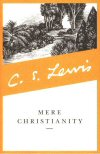
In the classic Mere Christianity, C.S. Lewis, the most important writer of the 20th century, explores the common ground upon which all of those of Christian faith stand together. Bringing together Lewis’ legendary broadcast talks during World War II from his three previous books The Case for Christianity, Christian Behavior, and Beyond Personality, Mere Christianity provides an unequaled opportunity for believers and nonbelievers alike to hear this powerful apologetic for the Christian faith.
As we witness Lewis develop we find that these volumes are working as a kind of unconscious autobiography.
—Books & Culture
C.S. Lewis understood, like few in the past century, just how deeply faith is both imaginative and rational.
—Christianity Today
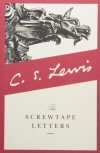
The Screwtape Letters by C.S. Lewis is a classic masterpiece of religious satire that entertains readers with its sly and ironic portrayal of human life and foibles from the vantage point of Screwtape, a highly placed assistant to “Our Father Below.” At once wildly comic, deadly serious, and strikingly original, C.S. Lewis’ The Screwtape Letters is the most engaging account of temptation—and triumph over it—ever written.
C.S. Lewis is the ideal persuader for the half–convinced, for the good man who would like to be a Christian but finds his intellect getting in the way.
—The New York Times Book Review
Apparently this Oxford don and Cambridge professor is going to be around for a long time; he calls himself a dinosaur but he seems to speak to people where they are.
—The Washington Post Book World
[The Screwtape Letters] show[s] Lewis’' ability to dramatize: to set forth an attractive vision of the Christian life, proceeding by means of character and plot to narrate an engaging story, everything colorful, vibrant, and active.
—Christianity Today
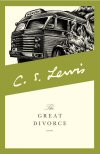
C.S. Lewis’ The Great Divorce is a classic Christian allegorical tale about a bus ride from hell to heaven. An extraordinary meditation upon good and evil, grace and judgment, Lewis’ revolutionary idea in the The Great Divorce is that the gates of Hell are locked from the inside. Using his extraordinary descriptive powers, Lewis’ The Great Divorce will change the way we think about good and evil.
Much deserves to be quoted...attractive imagery, amusing satire, exciting speculations...Lewis rouses curiosity about life after death only to sharpen awareness of this world.
—Guardian
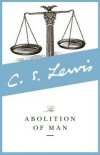
In the classic The Abolition of Man, C.S. Lewis, the most important Christian writer of the 20th century, sets out to persuade his audience of the importance and relevance of universal values such as courage and honor in contemporary society. He also makes a cogent case that a retreat from these pillars of our educational system, even if in the name of “scientism,” would be catastrophic. Both astonishing and prophetic, The Abolition of Man is one of the most debated of Lewis’ extraordinary works. National Review chose it as number seven on their "100 Best Nonfiction Books of the Twentieth Century."
A real triumph.
—Owen Barfield, author, Saving the Appearances: A Study in Idolatry
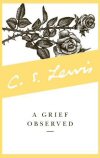
Written after his wife’s tragic death as a way of surviving the “mad midnight moment,” A Grief Observed is C.S. Lewis’ honest reflection on the fundamental issues of life, death, and faith in the midst of loss. This work contains his concise, genuine reflections on that period: “Nothing will shake a man—or at any rate a man like me—out of his merely verbal thinking and his merely notional beliefs. He has to be knocked silly before he comes to his senses. Only torture will bring out the truth. Only under torture does he discover it himself.” This is a beautiful and unflinchingly honest record of how even a stalwart believer can lose all sense of meaning in the universe, and how he can gradually regain his bearings.
A very personal, anguished, luminous little book about the meaning of death, marriage, and religion.
—Publishers Weekly
I read Lewis for comfort and pleasure many years ago, and a glance into the books revives my old admiration.
—John Updike, author, Rabbit, Run
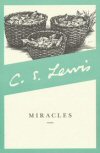
“The central miracle asserted by Christians is the Incarnation. They say that God became Man. Every other miracle prepares the way for this, or results from this.”
This is the key statement of Miracles, in which C.S. Lewis shows that a Christian must not only accept but rejoice in miracles as a testimony of the unique personal involvement of God in his creation.
Using his characteristic lucidity and wit to develop his argument, Lewis challenges the rationalists, agnostics, and deists on their own grounds and provides a poetic and joyous affirmation that miracles really do occur in our everyday lives.
This is Dr. Lewis’ most substantial and persuasive essay in Christian apologetics, and it is all the more impressive because it is the work of a poet as well as a philosopher
—Church Times
[A] brilliant book, abounding in lucid exposition and illuminating metaphor.
—Observer
The erudite Miracles deftly develops the thesis of Christian beliefs and determinedly counters nonbelievers.
—Booklist
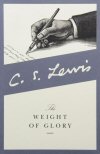
The Weight of Glory features nine memorable addresses C.S. Lewis delivered during World War II. Considered by many to be his most moving address, the title essay, “The Weight of Glory,” extols a compassionate vision of Christianity and includes lucid and compelling discussions on forgiveness and faith. “On Forgiveness,” “The Inner Ring,” and the other much–quoted pieces display Lewis’ breadth of learning and spiritual insight that have made him the most influential Christian of the twentieth century.
Lewis combines a novelist’s insights into motives with a profound religious understanding.
—The New York Times Book Review
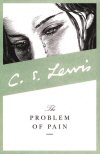
For centuries people have been tormented by one question above all: If God is good and all–powerful, why does he allow his creatures to suffer pain? And what of the suffering of animals, who neither deserve pain nor can be improved by it?
The greatest Christian thinker of our time sets out to disentangle this knotty issue. With his signature wealth of compassion and insight, C.S. Lewis offers answers to these crucial questions and shares his hope and wisdom to help heal a world hungry for a true understanding of human nature.
It is really a pleasure to be able to praise a book unreservedly, and that is just what I can do with The Problem of Pain.
—Guardian
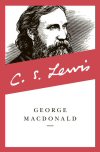
C.S. Lewis wrote of George MacDonald: “I know hardly any other writer who seems to be closer, or more continually close, to the Spirit of Christ Himself.“ Lewis also claimed that everything he wrote was influenced by this Scottish pastor and novelist who lived a century before. George MacDonald serves as an act of appreciation, with Lewis gathering 365 of the best and most profound lines from his mentor as well as providing a preface detailing the impact MacDonald had on Lewis’ own literary and spiritual career. Ranging from “Inexorable Love” to “God at the Door,” these words will instruct and uplift, as they did for C.S. Lewis.
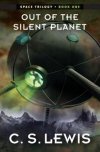
Just as readers have been transfixed by the stories, characters, and deeper meanings of Lewis’ timeless tales in The Chronicles of Narnia, most find this same allure in his classic Space Trilogy. In these fantasy stories for adults we encounter, once again, magical creatures, a world of wonders, epic battles, and revelations of transcendent truths.
Out of the Silent Planet is the first novel in C.S. Lewis’ classic science fiction trilogy. It tells the adventure of Dr. Ransom, a Cambridge academic, who is abducted and taken on a spaceship to the red planet of Malacandra, which he knows as Mars. His captors are plotting to plunder the planet’s treasures and plan to offer Ransom as a sacrifice to the creatures who live there. Ransom discovers he has come from the “silent planet”—Earth—whose tragic story is known throughout the universe!
This book has real splendor, compelling moments, and a flowing narrative.
—The New York Times
If wit and wisdom, style and scholarship are requisites to passage through the pearly gates, Mr. Lewis will be among the angels.
—The New Yorker
Lewis, perhaps more than any other twentieth–century writer, forced those who listened to him and read his works to come to terms with their own philosophical presuppositions.
—Los Angeles Times
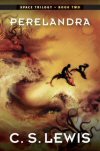
Just as readers have been transfixed by the stories, characters, and deeper meanings of Lewis’ timeless tales in The Chronicles of Narnia, most find the same allure in his classic Space Trilogy. In these fantasy stories for adults we encounter, once again, magical creatures, a world of wonders, epic battles, and revelations of transcendent truths.
Perelandra, the second novel in Lewis’ science fiction trilogy, tells of Dr. Ransom’s voyage to the paradise planet of Perelandra, or Venus, which turns out to be a beautiful Eden–like world. He is horrified to find that his old enemy, Dr. Weston, has also arrived and is putting him in grave peril once more. As the mad Weston’s body is taken over by the forces of evil, Ransom engages in a desperate struggle to save the innocence of Perelandra!
Writing of the highest order. Perelandra is, from all standpoints, far superior to other tales of interplanetary adventures.
—Commonweal
Mr. Lewis has a genius for making his fantasies livable.
—The New York Times
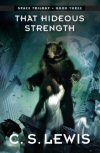
Just as readers have been transfixed by the stories, characters, and deeper meanings of Lewis’ timeless tales in The Chronicles of Narnia, most find this same allure in his classic Space Trilogy. In these fantasy stories for adults we encounter, once again, magical creatures, a world of wonders, epic battles, and revelations of transcendent truths.
That Hideous Strength is the third novel in Lewis’ science fiction trilogy. Set on Earth, it tells of a terrifying conspiracy against humanity. The story surrounds Mark and Jane Studdock, a newly married couple. Mark is a sociologist who is enticed to join an organization called N.I.C.E., which aims to control all human life. Jane, meanwhile, has bizarre prophetic dreams about a decapitated scientist, Alcasan. As Mark is drawn inextricably into the sinister organization, he discovers the truth of his wife’s dreams when he meets the literal head of Alcasan, which is being kept alive by infusions of blood. Jane seeks help concerning her dreams at a community called St. Anne’s, where she meets their leader—Dr. Ransom. The story ends in a final spectacular scene at the N.I.C.E. headquarters where Merlin appears to confront the powers of Hell.
In his usual polished prose, the author creates an elaborate satiric picture of a war between morality and devilry.
—The New Yorker
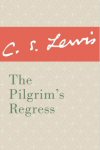
The first book written by C.S. Lewis after his conversion, The Pilgrim’s Regress is, in a sense, the record of Lewis’ own search for meaning and spiritual satisfaction—a search that eventually led him to Christianity.
Here is the story of the pilgrim John and his odyssey to an enchanting island which has created in him an intense longing; a mysterious, sweet desire. John’s pursuit of this desire takes him through adventures with such people as Mr. Enlightenment, Media Halfways, Mr. Mammon, Mother Kirk, Mr. Sensible, and Mr. Humanist and through such cities as Thrill and Eschropolis as well as the Valley of Humiliation.
Though the dragons and giants here are different from those in Bunyan’s Pilgrim’s Progress, Lewis’ allegory performs the same function of enabling the author to say simply and through fantasy what would otherwise have demanded a full–length philosophy of religion.
An excellent book. In its sharp imagery, its clever inferences, its suspense, its characterization, and its occasional grotesque humor, it stands favorable comparison with its great model by John Bunyan.
—Chicago Tribune
The allegorical characters are not just abstractions. They are, in every instance, people objectively real and subjectively true to the inner meaning. The language throughout is plain, straightforward and leanly significant. To many it will seem like a fresh wind blowing across arid wastes.
—The New York Times
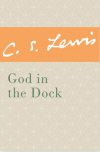
God in the Dock is one of the best known of C.S. Lewis’ essay collections and includes “Myth Become Fact,” “The Grand Miracle,” “Priestesses in the Church,” and “God in the Dock”.
Here the reader finds the tough–minded polemicist relishing the debate; here too the kindly teacher explaining a complex abstraction by means of clarifying analogies; here the public speaker addressing his varied audience with all the humility and grace of a man who knows how much more remains to be known.
—The New York Times
For those who know little of C.S. Lewis or his ideas, this book is a good introduction . . . God in the Dock contains some of the best of Lewis’ witty apologetics. And for those who have long known and loved the writings of Lewis, this volume is a welcome addition.
—Christianity Today
Takes us on a journey that is thoroughly entrancing . . . A model of solid common sense and imaginativeness, of balance and ingeniousness, of artistry and coherence.
—Commonweal
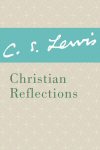
In Christian Reflections, C.S. Lewis brings his vast and original intellect to bear on a wealth of subjects, including ethics, historicism, Christianity, and culture. This selection of essays and papers, drawn from all stages of his career, presents Lewis at his most varied and profound.
This volume will be of special interest to people whose philosophy runs to futility, determinism, and atheism.
—Chicago Tribune
Christian Reflections brings C.S. Lewis’ genius to a ready public. His fidelity to eternal verities comes like a clean, refreshing breeze to air increasingly polluted by ‘dialogues’ of the unsure.
—Moody Monthly
Refreshing originality. . . A book that will both stimulate and tantalize.
—Review and Expositor
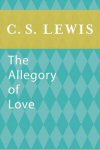
The Allegory of Love is a study in medieval tradition—the rise of both the sentiment called “courtly love” and of the allegorical method—from eleventh–century Languedoc through sixteenth–century England. C.S. Lewis devotes considerable attention to The Romance of the Rose and The Faerie Queene, and to such poets as Geoffrey Chaucer, John Gower, and Thomas Usk.
Scholarly, fascinating, and original.
—London Times Literary Supplement
Out of the multitude of volumes on literary criticism there arises once or twice in a generation a truly great work. Such, I believe, is this study by Mr. C.S. Lewis.
—The Observer
The tremendous amount of information, the brilliance of the ideas, the felicitous phrasing and always delightful style, all combine to make The Allegory of Love a really outstanding contribution to medieval studies.
—Modern Language Notes
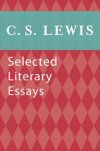
Selected Literary Essays includes over 20 of C.S. Lewis’ most important literary essays, written between 1932 and 1962. The topics discussed in this volume range from Chaucer to Kipling, from “The Literary Impact of the Authorized Version” to “Psycho–Analysis and Literary Criticism”, to Shakespeare and Bunyan, and Sir Walter Scott and William Morris. Common to each essay, however, are the lively wit, the distinctive forthrightness, and the discreet erudition which characterize Lewis’ best critical writing.
There is no essay by C.S. Lewis on any writer that does not provoke attention and inspire awe at his energy and clarity of mind.
—Claude Rawson, Maynard Mack professor emeritus of English, Yale University
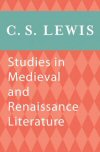
This entertaining and learned volume contains book reviews, lectures, and hard to find articles from the late C.S. Lewis, whose constant aim was to show the twentieth–century reader how to read and understand old books and manuscripts. Highlighting works by Spenser, Dante, Malory, Tasso, and Milton, Lewis provides a refreshing update to medieval and Renaissance criticism, and equips modern readers to understand these works in a new way.
Another side of Lewis’ witty, lucid intellect is revealed in this 1966 collection, now returned to print. Its 14 papers deal with Spenser, Dante, Malory, Tasso and Milton, and with such other topics as the medieval talent for reworking old books into something fresh and original.
—The New York Times
A remarkable intellect turns to the work of Spenser, Dante, Malory, Tasso and Milton. The 14 essays provide insight into medieval life as well as medieval literature.
—Philadelphia Inquirer
This collection of essays...is an invaluable addition to the library of anyone who, as Lewis did, not only reads, teaches and writes about medieval and Renaissance literature, but loves it.
—Cahiers Elisabethians
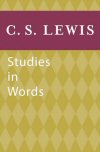
Language—in its communicative and playful functions, its literary formations and its shifting meanings—is a perennially fascinating topic. C.S. Lewis’ Studies in Words explores this fascination by taking a series of words and teasing out their connotations using examples from a vast range of English literature, recovering lost meanings and analyzing their functions. It doubles as an absorbing and entertaining study of verbal communication, its pleasures and problems. The issues revealed are essential to all who read and communicate thoughtfully, and are handled here by a masterful exponent and analyst of the English language.
Rarely is so much learning displayed with so much grace and charm. My only regret is that the book was not twice as long.
—The New York Times Book Review
A brilliant book addressed to students and to lay people alike and timelessly persuasive.
—Robert Burchfield, editor, the Oxford English Dictionary
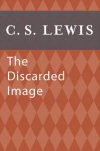
In The Discarded Image, C.S. Lewis paints a lucid picture of the medieval world view, providing the historical and cultural background to the literature of the Middle Ages and Renaissance. It describes the “image” discarded by later years as “the medieval synthesis itself, the whole organization of their theology, science and history into a single, complex, harmonious mental model of the universe.” This, Lewis’ last book, has been hailed as “the final memorial to the work of a great scholar and teacher and a wise and noble mind.”
Erudite and graceful, filled with anecdote and analogy, illuminating the images of the past.
—Los Angeles Times
It does you good to read [Lewis’] learned books, not because you are preached at, but because to read them is for the mind what a walk over fine, sometimes rough, country in good weather is for the healthy body.
—Birmingham Post
Nobody else could have imposed such form on such a mass of matter, and written a book so wide in scope. Whether we were his pupils in the classroom or no, we are all his pupil and we shall not look upon his like again.
—The Listener
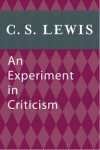
Why do we read literature and how do we judge it? C.S. Lewis’ classic An Experiment in Criticism springs from the conviction that literature exists for the joy of the reader and that books should be judged by the kind of reading they invite. He argues that “good reading,” like moral action or religious experience, involves surrender to the work in hand and a process of entering fully into the opinions of others: “in reading great literature I become a thousand men and yet remain myself.” Crucial to his notion of judging literature is a commitment to laying aside expectations and values extraneous to the work, in order to approach it with an open mind. Amid the complex welter of current critical theories, C.S. Lewis’ wisdom is valuably down–to–earth, refreshing, and stimulating in the questions it raises about the experience of reading.
Professor Lewis’ motive is admirable, since he would like all books to have a chance, and he is right to oppose the kind of criticism which regards a work with the air of a suspicious frontier guard examining the passport of an unfriendly alien.
—The Spectator
Lewis is provocative, tactful, biased, open–minded, old–fashioned, far–seeing, very annoying, and very wise. He believes that literature exists for the joy of the reader, and that all who come between the reader and his joy...may kill the very art which they seek to protect.
—Church Times
This is a plea for a resolutely low-church attitude to criticism...for those in favour of happiness but distrustful of politics and the elevated disapproving mind, and his book is a charter and a liberation.
—The Tablet
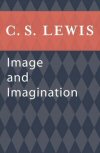
Image and Imagination presents some of C.S. Lewis’ finest literary criticism and religious exposition. This selection gathers together 40 book reviews–never before reprinted–as well as four major essays which have been unavailable for many decades, and a fifth essay, “Image and Imagination,” published for the first time. The essays and reviews substantiate Lewis’ reputation as an eloquent and authoritative critic across a wide range of literature, and as a keen judge of contemporary scholarship, while his reviews of The Hobbit and The Lord of the Rings will be of additional interest to scholars and students of fantasy.
C.S. Lewis is one of the very best critics writing in English in the twentieth century. There is no essay by Lewis on any writer that does not provoke attention and inspire awe at his energy and clarity of mind.
—Claude Rawson, Maynard Mack professor emeritus of English, Yale University
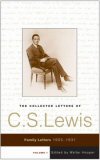
The life and mind of C.S. Lewis have fascinated those who have read his works. This collection of his personal letters reveals a unique intellectual journey. The first of a three–volume collection, this volume contains letters from Lewis’ boyhood, his army days in World War I, and his early academic life at Oxford. Here we encounter the creative, imaginative seeds that gave birth to some of his most famous works.
The Collected Letters of C. S. Lewis, vol. 1 offers an inside perspective to Lewis’ thinking during his formative years. Walter Hooper’s insightful notes and biographical appendix of all the correspondents make this an irreplaceable reference for those curious about the life and work of one of the most creative minds of the modern era.
As we witness Lewis develop we find that these volumes are working as a kind of unconscious autobiography.
—Books & Culture
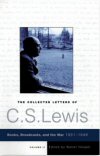
C.S. Lewis was a prolific letter writer, and his personal correspondence reveals much of his private life, reflections, friendships, and the progress of his thought. This second of a three–volume collection contains the letters Lewis wrote after his conversion to Christianity, as he began a lifetime of serious writing. Lewis corresponded with many of the twentieth century’s major literary figures, including J.R.R. Tolkien and Dorothy Sayers. Here we encounter a surge of letters in response to a new audience of laypeople who wrote to him after the great success of his BBC radio broadcasts during World War II—talks that would ultimately become his masterwork, Mere Christianity.
Volume II begins with C.S. Lewis writing his first major work of literary history, The Allegory of Love, which established him as a scholar with imaginative power. These letters trace his creative journey and recount his new circle of friends, “The Inklings,” who meet regularly to share their writing. Tolkien reads aloud chapters of his unfinished The Lord of the Rings, while Lewis shares portions of his first novel, Out of the Silent Planet. Lewis’ weekly letters to his brother, Warnie, away serving in the army during World War II, lead him to begin writing his first spiritual work, The Problem of Pain.
After the serialization of The Screwtape Letters, the director of religious broadcasting at the BBC approached Lewis and the “Mere Christianity” talks were born. With his new broadcasting career, Lewis was inundated with letters from all over the world. His faithful, thoughtful responses to numerous questions reveal the clarity and wisdom of his theological and intellectual beliefs.
Volume II includes Lewis’ correspondence with great writers such as Owen Barfield, Arthur C. Clarke, Sheldon Vanauken, and Dom Bede Griffiths. The letters address many of Lewis’ interests—theology, literary criticism, poetry, fantasy, and children’s stories—as well as reveal his relationships with close friends and family. But what is apparent throughout this volume is how this quiet bachelor professor in England touched the lives of many through an amazing discipline of personal correspondence. Walter Hooper’s insightful notes and compre hensive biographical appendix of the correspondents make this an irreplaceable reference for those curious about the life and work of one of the most creative minds of the modern era.
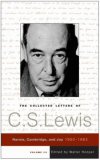
This collection, carefully chosen and arranged by Walter Hooper, is the most extensive collection of Lewis’ letters ever published. Included here are the letters Lewis wrote to such luminaries as J.R.R. Tolkien, Owen Barfield, Arthur C. Clarke, Sheldon Vanauken, and Dom Bede Griffiths. To some particular friends, such as Dorothy L. Sayers, Lewis wrote as many as fifty letters. The letters deal with all of Lewis’ interests–theology, literary criticism, poetry, fantasy, children’s stories–as well as his relationships with family members and friends.
The third and final volume begins with Lewis, already a household name from his BBC radio broadcasts and popular spiritual books, on the cusp of publishing his most famous and enduring book, The Lion, the Witch and the Wardrobe, which would ensure his immortality in the literary world. It covers his relationship with and marriage to Joy Davidman Gresham, subject of the film Shadowlands, and includes letters right up to his death on November 22, 1963, the day John F. Kennedy was assassinated.
This volume also includes both a special section of newly found letters from earlier time periods covered in volumes one and two and mini–biographies of Lewis’ regular correspondents.
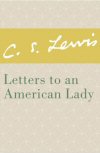
On October 26, 1950, C.S. Lewis wrote the first of more than a hundred letters he would send to a woman he had never met, but with whom he was to maintain a correspondence for the rest of his life.
Ranging broadly in subject matter, the letters discuss topics as profound as the love of God and as frivolous as preferences in cats. Lewis himself clearly had no idea that these letters would ever see publication, but they reveal facets of his character little known even to devoted readers of his fantasy and scholarly writings—a man patiently offering encouragement and guidance to another Christian through the day–to–day joys and sorrows of ordinary life.
Letters to an American Lady stands as a fascinating and moving testimony to the remarkable humanity and even more remarkable Christianity of C.S. Lewis, and is richly deserving of the position it now takes among the balance of his Christian writings.
Deeply interesting and very moving.
—J.R.R. Tolkien, author, The Lord of the Rings
A literary gem.
—Chicago Tribune
The reader will discover testimony for the patient faith and generous life of the private man who was this century's most famous Christian apologist . . . Lewis readers will treasure these letters for the glimpse they offer into the personal witness of the man.
—Christianity Today
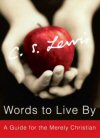
C.S. Lewis is a beloved writer and thinker and arguably the most important Christian intellectual of the twentieth century. His groundbreaking children’s series The Chronicles of Narnia, lucid nonfiction titles such as Mere Christianity and The Problem of Pain, and thought–provoking fiction, including The Screwtape Letters and The Great Divorce, have become trusted companions for millions of readers. Here Lewis breathes new life into words and concepts that have dulled through time and familiarity, and his writings inevitably provoke deep thought and surprising revelations.
Words to Live By contains an unprecedented selection of Lewis’ writings, drawing from his most popular works, but also from his volumes of letters and his lesser–known essays and poems. His works are presented in accessible selections covering subjects from A to Z, including beauty, character, confession, doubt, family, holiness, and religion. Both a wonderful introduction to Lewis’ thinking and a wise and insightful guide to key topics in the Christian life, these are truly words to live by.
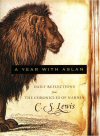
In the tradition of A Year with C.S. Lewis, get your daily dose of inspiration from this one–of–a–kind devotional collecting 365 readings from the beloved Chronicles of Narnia. C.S. Lewis channeled his profound spiritual understanding into The Lion, the Witch and the Wardrobe, Prince Caspian, The Voyage of the Dawn Treader, and the other books in his seminal fantasy series. This enthralling anthology is the perfect gift for fans of the beloved children’s books, and a peerless set of meditations for anyone looking to step through that secret door to their own world of devotion.
Lewis combines a novelist’s insights into motives with a profound religious understanding.
—The New York Times Book Review
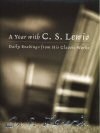
The classic A Year with C.S. Lewis is an intimate day–to–day companion by C.S. Lewis, the most important Christian writer of the twentieth century. The daily meditations have been culled from Lewis’ celebrated signature classics: Mere Christianity, The Screwtape Letters, The Great Divorce, The Problem of Pain, Miracles, and A Grief Observed, as well as from the distinguished works The Weight of Glory and The Abolition of Man. Ruminating on such themes as the nature of love, the existence of miracles, overcoming a devastating loss, and discovering a profound Christian faith, A Year with C.S. Lewis offers unflinchingly honest insight for each day of the year.
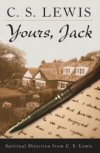
C.S. Lewis spent a good portion of each day corresponding with people via handwritten letters. Over his lifetime he wrote thousands of letters in which he offered his friends and acquaintances advice on the Christian life, giving away a bit of himself to each of these correspondents as he signed his notes with a heartfelt and familiar, “yours, Jack.” Most of these letters are currently only available in their entirety—a collection consisting of three hefty tomes. Yours, Jack features the best inspirational readings and sage counsel culled from C.S. Lewis’ letters, offering an accessible look at this great author’s personal vision for the spiritual life.
This thematic selection from his letters offers the freshest presentation of Lewis’ writings since his death in 1963. Yours, Jack will showcase Lewis’ remarkable teachings and vision for a new generation.
Clive Staples Lewis (1898 – 1963) was one of the intellectual giants of the twentieth century and arguably one of the most influential writers of his day. He was a fellow and tutor in English Literature at Oxford University until 1954, when he was unanimously elected to the chair of Medieval and Renaissance Literature at Cambridge University, a position he held until his retirement. He wrote more than 30 books, allowing him to reach a vast audience, and his works continue to attract thousands of new readers every year. His most distinguished and popular accomplishments include Out of the Silent Planet, The Great Divorce, The Screwtape Letters, and the universally acknowledged classic Mere Christianity.
Reviews
33 ratings
Arnie Abens
2/25/2024

Josh Tissot
9/3/2023

Stephen Brown
9/2/2023
JD Hargett
5/28/2022

Matt Hamrick
10/10/2021
Mr. Larry D Russell
1/17/2020
Eric Slack
1/16/2020
Phil Niebergall
1/10/2020